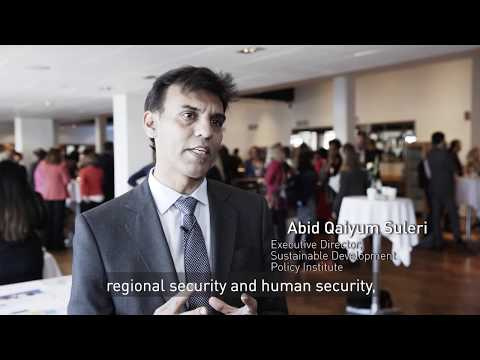Human security & climate resilience are prerequisites for peace - Interview with Abid Qaiyum Suleri
"Basically, there are 4 levels of security: We are talking of global security, we are talking of national security, regional security and human security, and my argument is that the countries and societies which ignore the human security turn all other securities vulnerable and turn them into insecurities.
For example in the case of Pakistan, when we look at the population which is vulnerable to floods for example due to climate change and many human-made disasters. That is the area which is more vulnerable and more prone to conflict. That is the area which is more vulnerable and prone to militant activities and that is where, when the state is not able to respond to the needs of the people, the non-state armed groups actually get a chance to fill in the vacuum, and they come as a humanitarian aid provider, and they come in all other guises, and they take sympathies of the local population.
So one can say that these insecurities, which are either due to the policy deficiencies or due to human actions, are due to natural climates. When they are not taken care of properly, they directly challenge the sustaining peace. In order to sustain peace, we have to remove these human insecurities, so the people’s resilience is strengthened and once their resilience is strengthened, they can avoid conflicts and they can live in a mutually amicable society.
In order to avoid climate risks, we have to strengthen the resilience of local people, we have to learn from communities’ knowledge, their indigenous knowledge, and we have to try to strengthen that bit. The externally imposed solutions, perhaps they won’t work well. All we need to do is to learn from the communities and strengthen their practices, the existing practices, the existing values and norms so that they can be climate-resilient and once they are climate-resilient, they will be able to live in a more peaceful society. That will strengthen the efforts towards peace.
In terms of policy making in developing countries, climate would only get attention when it is monetized, when we know that the losses due to climate change are XY billion dollars and only then policy makers will give it immediate attention. If you just think in terms of planet, in terms of trees, in terms of biodiversity etc., many of the policy makers in developing countries won’t give it much attention. The moment you tell them that due to climate change X percentage of your GDP is lost per annum, they will give it attention and that’s how we need to label it if we want to tell it to the more powerful ministers in cabinet, which is the finance minister."










